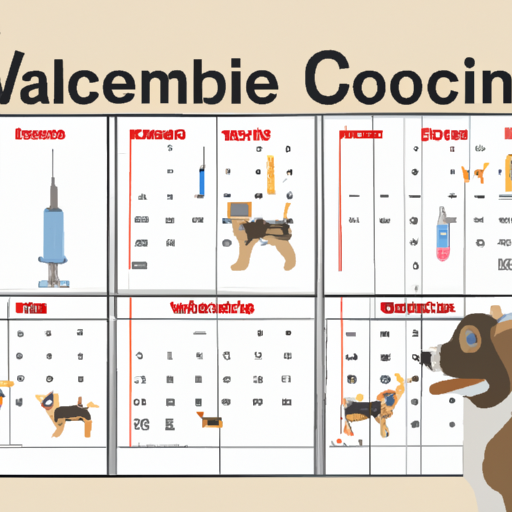As a loving caregiver to your furry friend, it’s important to understand the significance of dog vaccinations and their frequency. Let’s get into the details.
Why Vaccinations Matter
Vaccines work by simulating a viral attack on your dog’s immune system, which triggers the production of antibodies. These antibodies then help fight off real infections in the future. Vaccinating your dog not only protects them from serious diseases but also helps maintain the overall health of the pet population.
Vaccines are life-savers. They protect your dog from diseases like:
– Rabies
– Distemper
– Parvovirus
– Leptospirosis
When to Start Vaccinations
Puppies should start receiving vaccinations when they are 6 to 8 weeks old. This is the time when the maternal antibodies they received from their mother’s milk start to wear off, leaving them vulnerable to infections.
“The best time to start vaccinations is when your puppy is between 6 to 8 weeks old.”
From 6 weeks onwards, your dog should follow a vaccination schedule which looks something like this:
| Age (weeks) | Vaccine |
|---|---|
| 6 – 8 | Distemper, Parvovirus |
| 10 – 12 | DHPP (distemper, adenovirus, parainfluenza, and parvovirus) |
| 12 – 24 | Rabies |
| 14 – 16 | DHPP |
The Frequency of Vaccines
The frequency of vaccines largely depends on your dog’s age, lifestyle, and potential exposure to diseases.
- Puppies usually get a series of shots until they are 16 weeks old.
- Adult dogs generally need booster shots every year or every three years, depending on the vaccine.
- Senior dogs may need more frequent vaccinations due to a weaker immune system.
Risks and Side Effects
Like any medical procedure, vaccines can have side effects. Most are minor and temporary. However, severe reactions, although rare, can occur. Common side effects include:
- Fever
- Fatigue
- Loss of appetite
- Swelling at the injection site
If your dog shows signs of a severe reaction like difficulty breathing, hives, or vomiting, contact your vet immediately.
Tailoring Vaccinations to Your Dog’s Needs
No two dogs are the same. Therefore, it’s important to work with your vet to create a vaccination schedule that suits the needs of your dog, considering factors like breed, age, lifestyle, and health status.
Frequently Asked Questions
Q: Can I vaccinate my dog myself?
While technically possible, it’s generally recommended to have a professional administer vaccines to ensure they are given correctly and safely.
Q: How often do indoor dogs need vaccines?
Even indoor dogs can be exposed to viruses, so they should still follow the recommended vaccination schedule.
Q: Can vaccines make my dog sick?
Vaccines can cause minor side effects like fatigue or a mild fever, but serious illness is rare.
Q: What happens if my dog misses a vaccine?
If your dog misses a vaccine, it’s best to consult your vet to get back on track as soon as possible.



